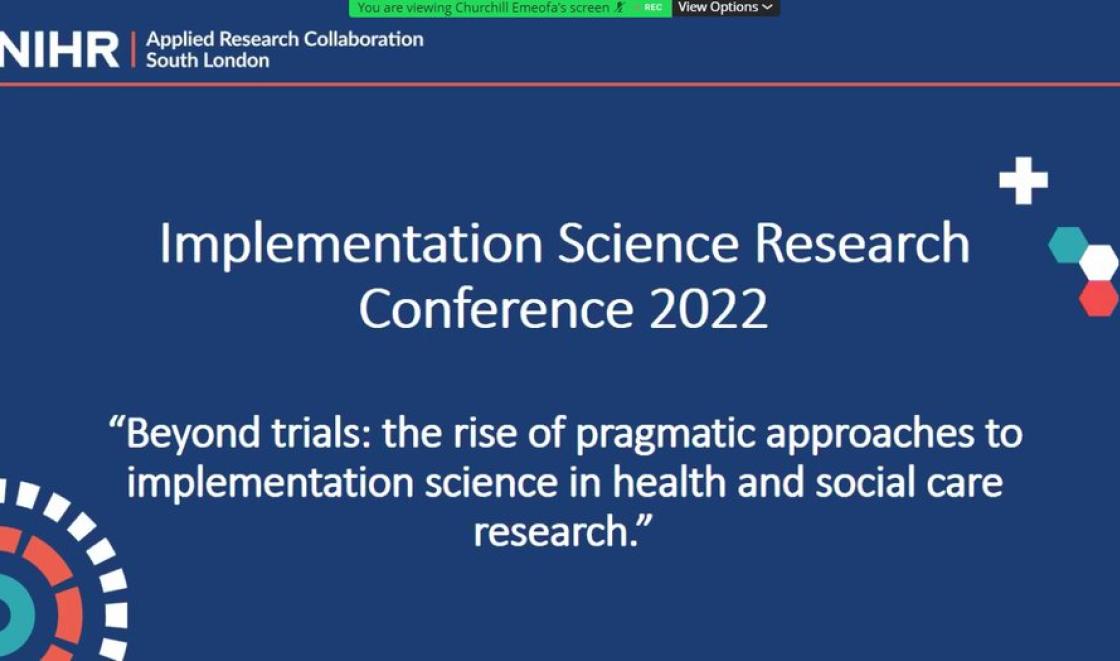The conference featured four plenary lectures from a panel of leading international researchers and practitioners, 41 oral and poster presentations, nine meet-the-experts sessions, panel discussions, and question & answer sessions.
Delegates came from 13 countries, including Australia, Austria, Brazil, Canada, Denmark, Ethiopia, Germany, Ireland, the Netherlands, South Africa, Switzerland, UK and USA, and included applied researchers, health and social care professionals, policymakers, and service user researchers.
The four plenary lectures explored the relationship between research and policy, patient involvement and communications, telemental health during Covid-19, and how to deliver health and care interventions in practice. The four plenaries were delivered by:
- Paul Cairney, professor of politics and public policy, University of Stirling, UK, who discussed ‘Why policymakers do not listen to your evidence, and is it their fault?’
- Vanessa Carter, an antimicrobial resistance and One Health advocate, South Africa, who explored valuing patient engagement to implement meaningful interventions for antimicrobial resistance
- Samantha Connolly, an investigator at the Center for Healthcare Organization and Implementation Research and a practicing clinical psychologist at the US Department of Veterans Affairs Boston Healthcare System and Donald M. Hilty, professor of psychiatry, UC Davis School of Medicine, USA, who together discussed critical components of telemental health implementation during the Covid-19 pandemic from patient, clinician, and system perspectives
- Jill Francis, professor of implementation science, School of Health Sciences, University of Melbourne, Australia, who discussed ‘Implementation in the wild: three levers to support practice change’.
Across the conference, there were 41 oral and poster presentations, covering pragmatic approaches to implementation science in a variety of health and social care contexts, including mental health, global health, palliative care, children’s health, maternity care, diabetes self-management and care homes. The abstracts presented will be published by BMC in a special supplement of Implementation Science.
There were also opportunities for delegates to meet in smaller groups with leading implementation science experts to discuss everything from hybrid research designs, evaluating complex interventions to understanding the role of trust, power and equity in implementation.
